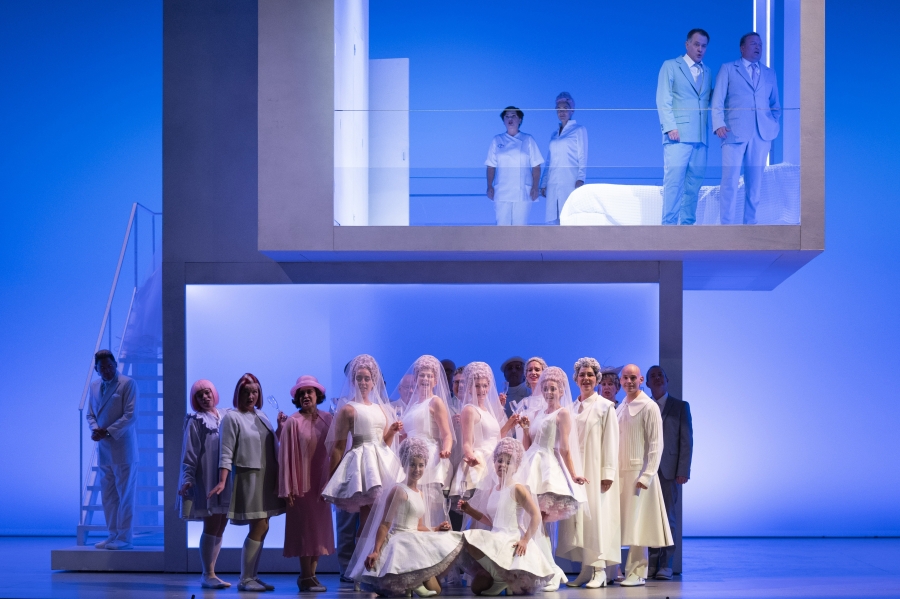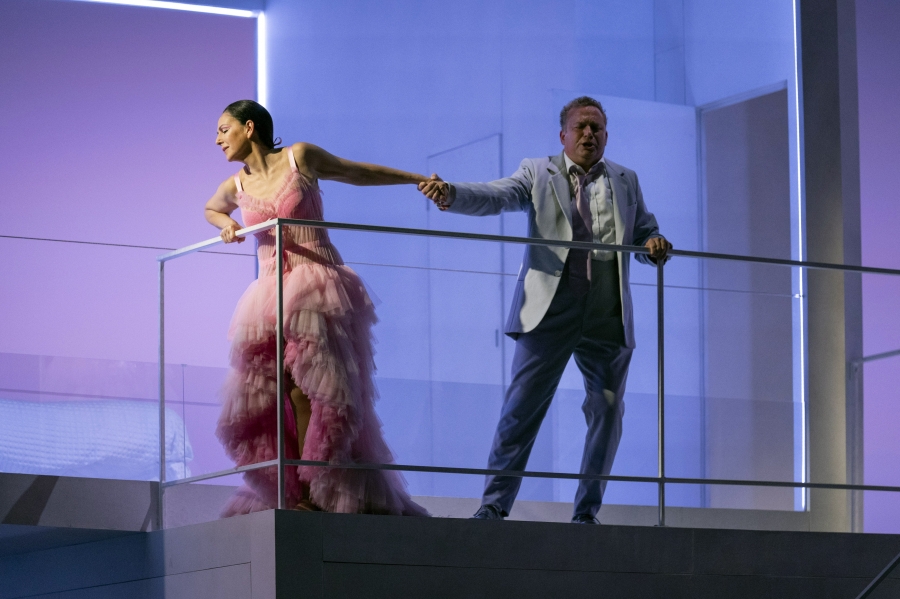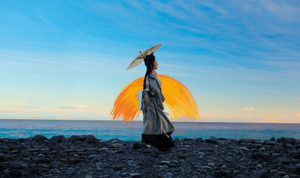
 (4 / 5)
(4 / 5)
Under the direction of Lindy Hume, the Welsh National Opera’s Madam Butterfly is set in an imaginary dystopic future to convey the cruelty of imperialism. The opera is no longer set in Japan but in an exotic oasis for the pleasure of wealthy American men. It reminded me of the 1964 Russian propaganda film I Am Cuba by Mikhail Kalatozov. In the film, Cuba is the seductive playground of rich Americans, a country turned prostitute by Batista. Although too propagandistic in narrative, the unorthodox cinematography of I Am Cuba, with its extreme wide-angles and complex tracking-shots, made the film unsettling and powerful. Alas, Lindy Hume’s anti-colonial vision for Madam Butterfly loses force by decontextualising the drama.
The opera begins with women in white short tulle dresses and tall pink wigs. Among them is Cio-cio-sa/Butterfly, who is to wed American soldier Pinkerton. The action takes place in and around a two-storey rotating white cube. Hume sought to emphasise the exploitation of Butterfly who is sold as trophy bride and quickly discarded. Butterfly is a victim of a misogynistic colonial society. Yet, by erasing Japan from Madam Butterfly, the colonial othering of Cio-cio-sa is lost. Relationships of power are all dependent on context. They cannot be abstracted. Cio-cio-san is the trophy bride because she is a Japanese young girl to be collected like a colourful butterfly.

In addition, there is a lot more to Cio-cio-san than Hume’s direction implies. She is here painted as a victim, disregarding how 15-year-old Cio-cio-san, notwithstanding being still a child, escapes her family and clan. She goes against her home society to affirm her own will. She stays loyal to her American husband and to his country to the very end. The tragedy lies in the fact that she finds her downfall in her loyalty and shame. Alexia Voulgaridou gives a rounded performance making one forget the awkward futuristic setting designed by Isabella Bywater.
Voulgaridou gives an impeccable performance as Cio-cio-san. Her voice is powerful and agile; it develops in intensity as the tragedy unfolds. Her interpretation is subtle and convincing. Kezia Bienek, as Suzuki, is also noteworthy. She conveys the melancholy of her role as Cio-cio-san’s sister perfectly. Together, Voulgaridou and Bienek deliver a beautiful duet full of warmth.
Julian Boyce as Imperial Commissioner and Tom Randle as Goro give solid and sophisticated performances, less impressive is Peter Auty’s Pinkerton. Excellent is the orchestra conducted with fervour and depth by Carlo Rizzi. The impressive performances, the orchestra, and Puccini’s music make one forget the contrived setting.

